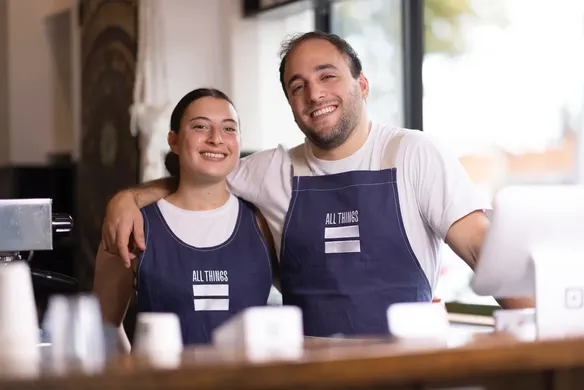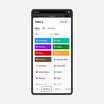“We are all different, and we are all equal”. This is the philosophy behind All Things Equal, a cafe in Melbourne dedicated to providing meaningful employment to people living with a disability. The business aims to help their employees contribute to society, find a sense of belonging in the community and maintain a sustainable income, regardless of whether or not they have a disability.
Importantly, All Things Equal is not a charity cafe — it is a business with a commercial business model, demonstrating how cafes and other businesses and industries can adopt a model to employ people with disabilities and support them in gaining work experience. They’re not only advocating for a great cause, but also serving up delicious food and coffee, with a menu focused on high-protein, plant-based produce.
We spoke to Anna Scholten, Project Manager and Board Member for All Things Equal, about how the business developed their commercial model, the challenges they’ve faced so far, and how they plan to scale in the future.
Tell us a bit about how All Things Equal got started.
One of our board directors, Jonathan Wenig, came up with the idea in July last year. His beautiful daughter Tali, who has special needs, faced more than the usual challenges in finding a job that would suit her.
Jonathan wanted to hone in on her strengths and passion for cooking, and chart a path forward for Tali, where meaningful employment exists for those with a disability, and being a part of a community and a sense of belonging in a social environment is accessible.
We saw that many young people with special needs were in the same boat, and acknowledged just how many people with a disability are capable of contributing in a mainstream work environment.
The board spent four months brainstorming this concept and understanding how to make this business idea stick in a cafe environment. A space was identified in Carlisle Street, Balaclava, where the infrastructure was already there. By adapting the existing space, we knew this could be the ideal opportunity to launch our new project, All Things Equal.
Ultimately, we want All Things Equal to be a commercially viable business, where we’re providing employment opportunities that are as close to what a mainstream work environment would be.
How are you providing equality and opportunities to people with a disability?
We provide education and upskilling, not just for a particular area they might be interested in (such as a barista), but also from the perspective of feeling confident enough to engage with the broader community. Every prospective employee hands in their CV for the job application, participates in an interview, and is then acknowledged as a valued employee of the business, where they are accountable to perform their role to the best of their ability.
We employ people based on merit, capability and attitude, which is what you and I are also employed on, so why aren’t those with a disability afforded the same process and opportunity? We also pay the Restaurant Industry Award rate for every staff member.
All Things Equal has only been open since mid-January this year, yet we are overwhelmed with agencies and families reaching out to place people in employment, and we don’t have enough jobs to give!
Aside from ensuring our cafe continues to thrive and grow, this is the biggest challenge we are faced with.
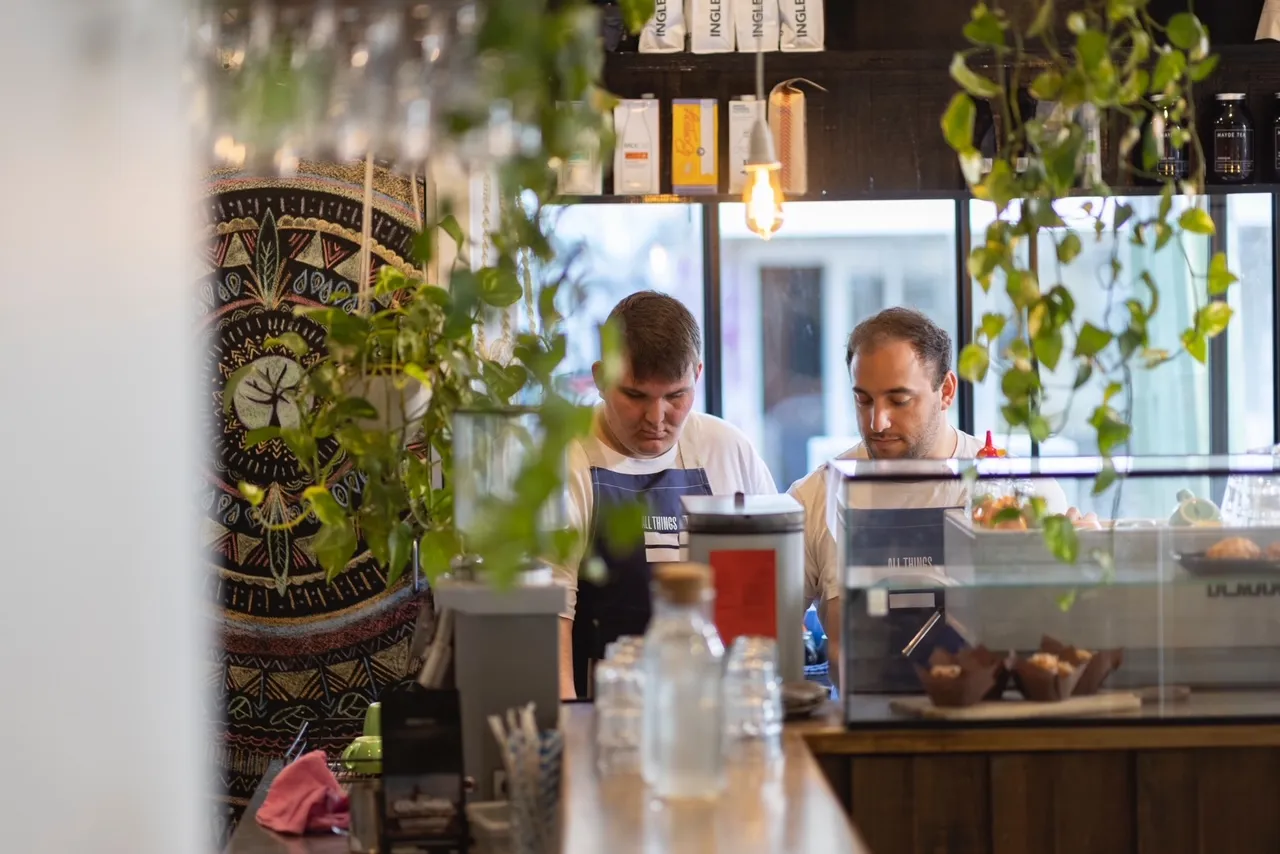
What has the public’s response been so far?
It’s been really well received. It’s incredible to see that we have struck a chord with the broader community, because this sort of meaningful employment just doesn’t appear to exist. There might be other places out there, but employees with disabilities are not often paid the appropriate wage and they’re not afforded consistent ongoing employment.
What are the biggest challenges of managing a business like this day to day?
Ensuring our staff members with a disability are supported in doing the work – understanding what their responsibilities and duties are each day, and mitigating any staff member becoming overwhelmed due to lack of clarity. Many people with a disability need consistency to thrive, although that being said, I would argue most of us thrive with consistency and familiarity, which in turn promotes confidence.
If it’s quiet or there’s not enough stimulation, sometimes this can create anxieties that are confronting for that person, so the opportunity for us is to learn and work out the best processes to support each staff member so they can thrive and have joy in their day.
We’re still learning on the job (being 16 weeks in!). We’ve reached out to a number of organisations who specialise in disability and have provided us with professional insight and guidance, to ensure we understand how best we can support all employees as we continue to move forward and evolve.
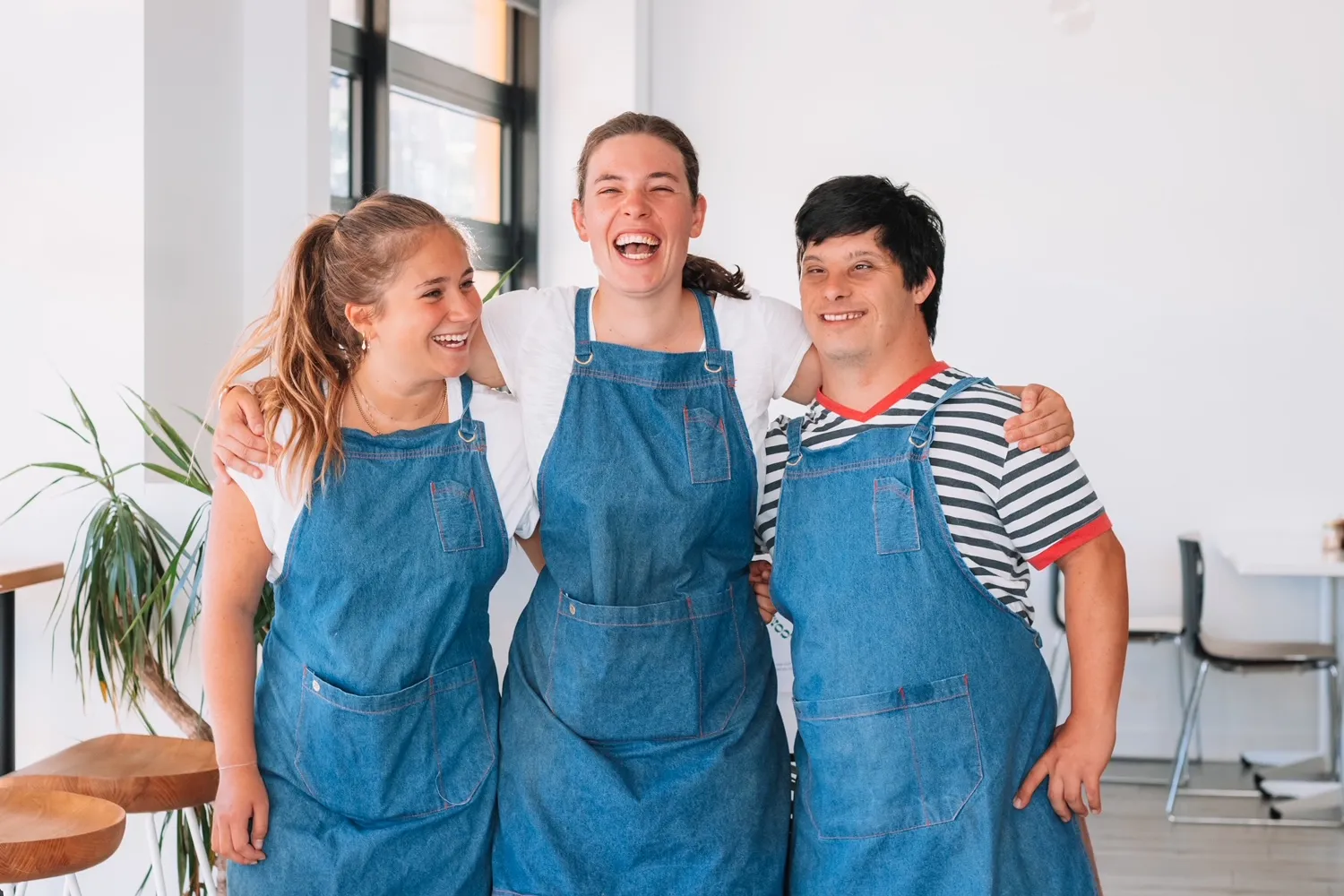
What do you find most rewarding about your work?
The pure joy from staff finally being acknowledged, being part of a community, and being provided with meaningful work. This is the essence of our work – to see such genuine happiness and smiles each day, to ensure all of our employees receive a ‘real wage’, and educating the broader community – it’s a golden and most precious opportunity.
When staff come into the cafe, they are welcomed and immediately engage with people. They are able to look after these wonderful people, our customers, and be acknowledged. Our staff are important, they belong. This is hands down, the best part. To help forge such a necessary path in our world that serves a purpose far beyond me, is incredibly rewarding.
Of course it would be remiss of me if I didn’t acknowledge the joy these jobs bring to the staff member’s families – this is the ripple effect that people often don’t see or consider. This is why the opportunity to educate the broader community is so precious. When you provide employment to all abilities and you promote an inclusive culture, you’re not just impacting that one person as the employee, you’re impacting their families, friends, and their confidence to socialise more within their own communities – to engage and participate in society. This is the best part of it all.
How have Square’s tools helped the business so far?
Square has been a great help in supporting us to have the best tools to run our cafe. We use Square for Restaurants and the Square Reader and Dock for tap-and-go payments, with the Square Stand, which swivels. We use Square Terminal if we need to take payment at tables. The design of the hardware is so well considered both with its functionality and aesthetics, which aligns so well with our business. It blends in with how clean and minimal the hardware is and provides the appropriate support for our requirements.
In addition, we have two iPads with the software installed, and we use Square Team Management for our employees to clock in and clock off using the roster system.
As some of our staff require alternative means to capture customers’ orders at tables, we use the second iPad to facilitate this, which works beautifully. With Square’s software, our staff just have to tap our menu items to take the order. To go one step further, we’ve also numbered the menu items on our physical menu, so if one of our staff need a little extra support, the customer can say “I’ll have number two, please”, and all they need to do is tap this button in the Square software. This not only reduces the risk of error, but more importantly, increases the ability to service our customers with confidence and independence.
Square and the software is a non-negotiable in our business – it has to be there for the staff to thrive.
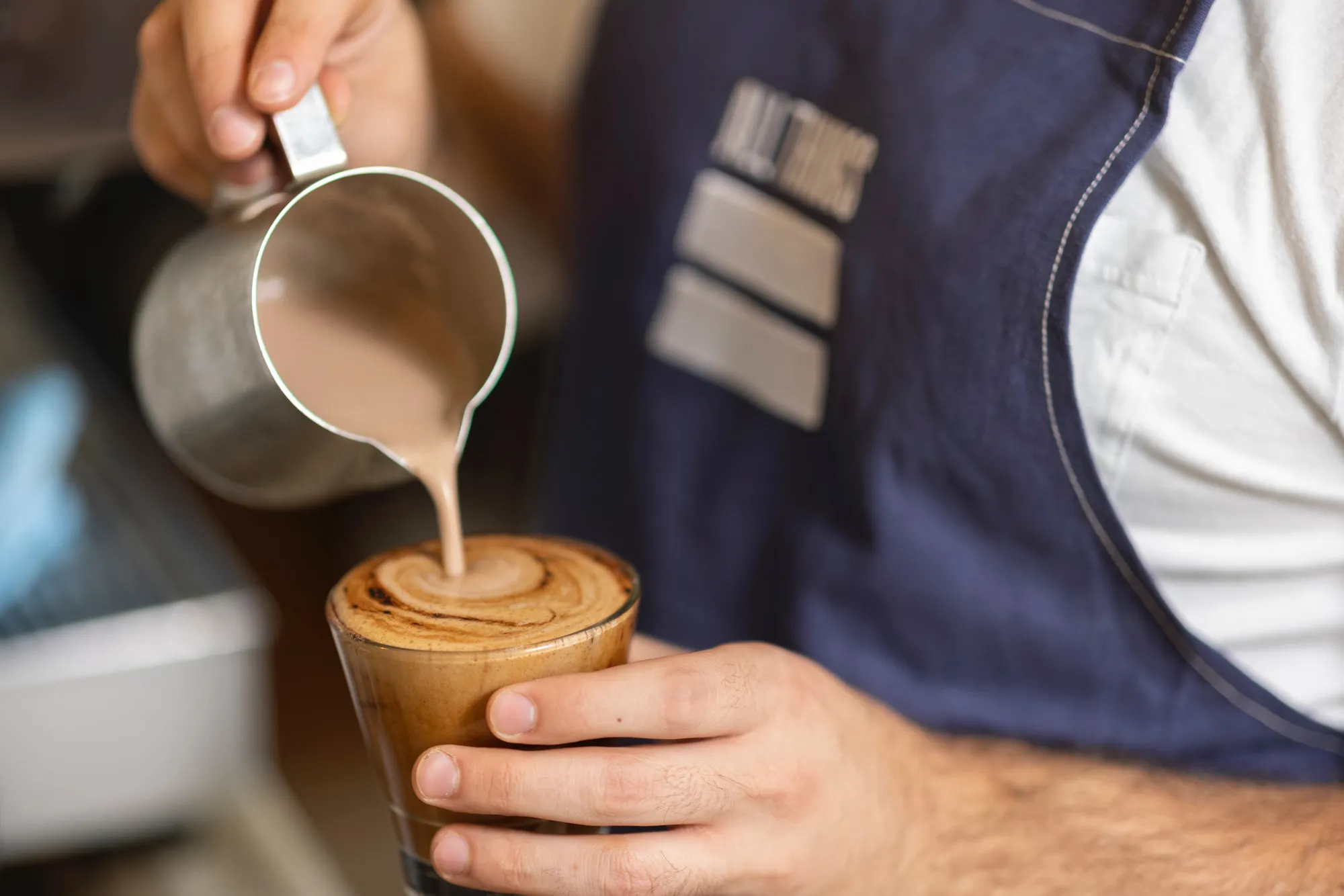
Where do you see the business heading in the future?
Our long-term vision is to open multiple sites and have a replicable model, but not necessarily cafe sites. Maybe it’s a soup kitchen, a florist, or an ice creamery and smoothie bowl bar. There needs to be choice, because we acknowledge that not everyone is interested in hospitality.
We’re looking at the opportunity to launch an open kitchen. I think something where the broader community can watch people working in the kitchen, see what they’re making and for staff to be displaying their craft.
We have so much we wish to achieve and we’re just really impatient to get there. We know how important it is to keep going as we know the next site and the next site again and so on, will be a success. We know by generating more awareness, the broader community want to support these projects and do their bit as well.
The big dream is that one day, someone who runs a mainstream business might say, why aren’t we doing this here? And then all of a sudden, mainstream businesses start to take on the opportunity and see all abilities.
That all sounds very exciting. What else do you think makes All Things Equal special?
We want to be known as a really awesome cafe in Melbourne that has a fun vibe, does incredible food and coffee consistently, and people come for that reason. They might not necessarily know that we employ people with disabilities. They come in and receive an exceptional experience, which I like to think is the cherry on top of why this has become a successful cafe – people with a disability are a major part of running the show.
It’s a huge gap in Victorian society. Wouldn’t it be great if in 10 years time, speaking personally from having a child with a disability that my son, along with so many others, can go out into the workforce, and you don’t have to create a business to provide him with meaningful employment opportunities? That mainstream work environments have adopted this attitude, and the government gets behind an initiative like this, and seeks to educate the broader community, so that in 10 years time, this is not a thing? That’s the goal.
![]()

